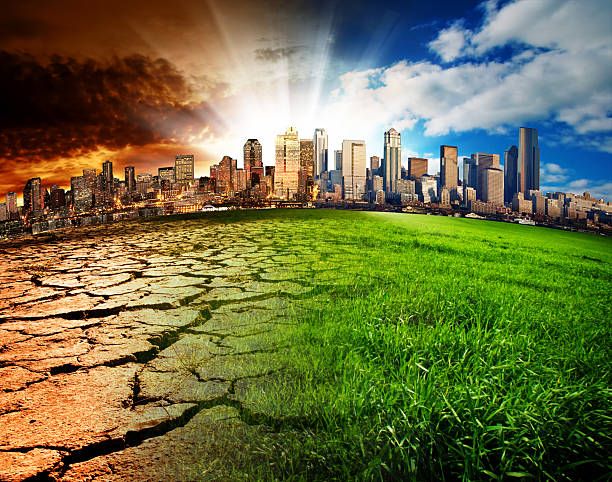
Climate Change: A Global Crisis Requiring Urgent Action

Introduction
Climate change has emerged as one of the most pressing issues of our time, impacting every corner of the globe and threatening the delicate balance of our planet's ecosystems. The consequences of climate change are far-reaching, affecting not only the environment but also human health, economies, and social stability. In this blog, we will explore the causes and effects of climate change, its implications for the world, and the urgent need for collective action to combat this global crisis.
Understanding Climate Change
Climate change refers to long-term alterations in temperature patterns and weather conditions on Earth. While natural climate variations have occurred throughout history, human activities since the Industrial Revolution have significantly accelerated the pace of change. The primary driver of climate change is the increase in greenhouse gases (GHGs) such as carbon dioxide (CO2), methane (CH4), and nitrous oxide (N2O) in the atmosphere. These gases trap heat, leading to the greenhouse effect and a rise in global temperatures.
Causes of Climate Change
Burning of Fossil Fuels: The burning of coal, oil, and natural gas for energy production and transportation releases large quantities of CO2 into the atmosphere, contributing to the rise in GHG levels.
Deforestation: Trees play a crucial role in absorbing CO2 through photosynthesis. Deforestation for agriculture, urbanization, and logging reduces the planet's capacity to absorb GHGs, leading to increased atmospheric concentrations.
Industrial Processes: Industrial activities produce GHGs through various processes, including manufacturing, cement production, and chemical reactions.
Agricultural Practices: Farming methods, particularly intensive livestock production and rice cultivation, release significant amounts of methane and nitrous oxide, both potent GHGs.
Impacts of Climate Change
Rising Temperatures: Global average temperatures have been steadily increasing, resulting in heatwaves, extreme weather events, and shifts in precipitation patterns.
Melting Ice and Rising Sea Levels: Higher temperatures are causing the polar ice caps and glaciers to melt, contributing to rising sea levels. This poses a significant threat to coastal communities, ecosystems, and low-lying countries.
Changes in Ecosystems: Climate change disrupts ecosystems, causing shifts in plant and animal species' distributions, loss of biodiversity, and increased risk of species extinction.
Water Scarcity and Droughts: Changing precipitation patterns lead to water scarcity in some regions, affecting agriculture, freshwater availability, and human livelihoods.
Increased Frequency of Extreme Weather Events: Hurricanes, floods, wildfires, and droughts are becoming more frequent and intense due to climate change, causing significant human suffering and economic losses.
The Urgent Need for Action
Addressing climate change requires immediate and concerted action on a global scale. Here are some key steps that individuals, communities, governments, and businesses can take:
Transition to Renewable Energy: Governments should invest in renewable energy sources such as solar, wind, and hydropower, while individuals can support clean energy initiatives and reduce their reliance on fossil fuels.
Reduce Emissions: Governments and industries should implement stricter regulations to reduce GHG emissions. Individuals can contribute by adopting energy-efficient practices, using public transportation, and minimizing waste.
Preserve and Restore Ecosystems: Protecting and restoring forests, wetlands, and other ecosystems helps absorb CO2 and preserve biodiversity.
Promote Sustainable Agriculture: Encouraging sustainable farming practices, such as organic farming and agroforestry, can reduce agricultural emissions and improve soil health.
Educate and Raise Awareness: Public education and awareness campaigns are crucial in promoting a collective understanding of climate change and its consequences.
Conclusion
Climate change is an existential threat that demands immediate action from all sectors of society. The consequences of inaction are severe and will be felt by future generations. By adopting sustainable practices, reducing emissions, and transitioning to renewable energy sources, we can mitigate the worst effects of climate change and build a more resilient and sustainable future. It is our collective responsibility to act now and preserve our planet for generations to come.
Appreciate the creator